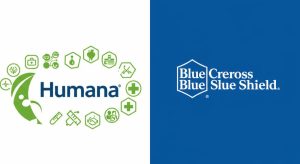A basic understanding of Medicare helps you get the most out of your health insurance. The first thing you need to understand is that Original Medicare contains two different parts: Part A and Part B.
Medicare Part B Premiums include medical services and supplies that are considered medically necessary to treat your health status. This includes outpatient services, preventive care, emergency services, and durable medical devices.
Some preventive services are also included in Medicare Part B, such as a one-time preventive visit, cardiovascular and flu screening, hepatitis B vaccines, cancer, and diabetes screening, and other services. Medicare Part B is an automatic login for some, others need to sign in.
Find Medicare Plans in 3 Easy Steps
We can help get up to $0 monthly premium Medicare plans
What Are Medicare Part B Premiums?

Medicare Part B premiums change from year to year, and the monthly premium varies by income and personal circumstances.
Your Part B premium is automatically deducted from your benefit payment when you receive benefits from social security, the Railroad Retirement Board, or the Office of Human Resources Management. If you don’t receive benefit payments, you will receive the invoice.
How Much Does Part B Cost In 2021-2022?

Medicare Part B uses your two-year earlier tax return to determine the monthly premium you will pay. Your return will be used by 2022 in 2021. The standard Part B premium amount in 2021 is $148.50.
If your individual income exceeds $87,000 or your shared income exceeds $174,000, you’ll pay that monthly premium.
In addition, Medicare Part B beneficiaries must pay the annual deductible fee of $203 in 2021. The increase in 2019 is mainly due to increased spending on medically administered drugs.
Part B Deductible & Coinsurance

The deductible is the amount of money you have to pay in your own pocket before the plan starts coverage. For example, the annual Medicare Part B deductible in 2021 is $203 and a coinsurance of 20% for several covered services. The amount you pay for services covered by Part B depends on whether you visit a participating or non-participating provider.
Participating providers (doctors or healthcare professionals) accept the approved Medicare amount for a service and you are responsible for the Part B deductible along with 20% of the approved amount.
However, some providers don’t accept the approved Medicare amount. These non-participating providers have not signed an agreement with Medicare and may charge up to 15% more than the Medicare-approved amount, which means that you are responsible for 20% coinsurance plus 15%.
Ways To Pay Medicare Part B Premiums
- Sign in to your secure MyMedicare.gov account and pay online with a credit or debit card.
- Log in to Medicare Easy Pay, a service that automatically deducts premium payments from your savings or checking account each month.
- Send your payment to Medicare by check, payment order, credit, or debit card.
Do You Have Medical Insurance or Other Coverage?
If you have limited income and assets, you may be eligible for financial support to pay Medicare Part B premiums.
The Medicare Savings Program offers three different programs that you can use to cover the costs of Medicare Part B. To qualify, the following requirements for all three programs are Qualified Medicare Beneficiary (QMB).
Monthly income should be less than $1,083 for individuals and $1,457 for couples, and resources cannot exceed $7,860 for individuals and $11,800 for couples. The specific beneficiary of low-income Medicare (SLMB).
Monthly income should be less than $1,296 for individuals and $1,744 for couples and resources cannot exceed $7,860 for individuals and $11,800 for couples.
A qualified person (QL). Monthly income should be less than $1,456 for individuals and $1,960 for couples, and resources cannot exceed $7,860 for individuals and $11,800 for couples. “Resources” contains any money from a checking or savings account, stocks, and bonds.
Read: What does Medicare part b pay for
Find Medicare Plans in 3 Easy Steps
We can help get up to $0 monthly premium Medicare plans
Are Medicare Part B Premiums Tax-Deductible?
Many types of medical costs are tax-deductible. For example, under US tax law, you can deduct Medicare expenses (including premiums) that exceed a certain percentage of your income. If you have questions about the Medicare Part B bonds you can expect to pay and your right to financial support, talk to one of our licensed agents today. Our agents discuss your Medicare options and help you find a plan that works for you.





